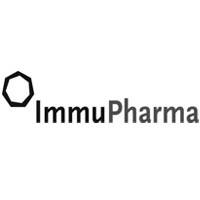ImmuPharma plc (LSE:IMM) the specialist discovery and development pharmaceutical company, has told DirectorsTalk that Cancer Research, the prestigious medical journal of the American Association for Cancer Research, has published a fundamental scientific paper disclosing the mechanism of action of the Company’s cancer compound IPP-204106.
The IPP-204106 programme, which is a potential treatment for various cancers, involves the development of synthetic peptides, Nucants, which target surface nucleolin with very high affinity and selectivity.
The publication was entitled “Nucleolin targeting impairs the progression of pancreatic cancer and promotes the normalization of tumour vasculature” and was authored by a number of researchers working within ImmuPharma on the Company’s Cancer programme.
The key findings of the study for this compound (referred to in the paper as N6L) were:
· Nucleolin inhibition is a new anti-cancer therapeutic strategy that has been shown to dually normalise tumour vasculature and reduce its volume
· As a result, it has the potential to improve dramatically the delivery and efficacy of existing chemotherapeutic drugs, and in particular, for difficult-to-treat tumours such as Pancreatic cancer
Dr. Robert Zimmer, MD, PhD, ImmuPharma’s President and head of R&D explains: “The publication of the mechanism of action of the Nucants in Cancer Research is a validation of this novel concept in the treatment of cancer we have been developing in partnership with our collaboration partner, CNRS. It relies on the modulating effect of the Nucants on angiogenesis, the mechanism which controls the formation of micro vessels. Generally, the tumour generated micro vessels are of poor quality and offer a poor supply of blood and oxygen to the tumour. As a consequence, it makes the tumour much more resistant to cytotoxic drugs. By modulating the tumour micro vessels Nucants ameliorate the blood flow, allow a better oxygen supply and increase the intra-tumoural cytotoxic drug concentration. About threefold increase of cytotoxic drug concentration and threefold decrease in tumour size have been observed in preclinical studies. The intended treatment scheme is to pre-treat the patient with Nucant and then deliver the standard dose of cytotoxic drug, Gemcitabin for example in pancreatic cancer.
This is the second time that we have been acknowledged by the ACCR. The first in 2011 when our Cancer compound was chosen to be on the cover of the journal disclosing the specific binding to nucleolin and therefore to tumour cells by the Nucants. It is a pleasing validation of years of research by our scientific team and collaborators and gives us further confidence in the long term potential of our Cancer programme, this compound and its unique mechanism of action“.
The full ‘Abstract’ is detailed below:
“Pancreatic cancer is a highly aggressive tumour, mostly resistant to the standard treatments. Nucleolin (NCL) is overexpressed in cancers and its inhibition impairs tumour growth. Herein we showed that NCL was overexpressed in human specimens of pancreatic ductal adenocarcinoma (PDAC) and that the overall survival significantly increased in patients with low levels of NCL. The NCL antagonist N6L strongly impaired the growth of primary tumours and liver metastasis in an orthotopic mouse model of PDAC (mPDAC). Similar anti-tumour effect of N6L has been observed in a highly angiogenic mouse model of pancreatic neuroendocrine tumour RIP-Tag2. N6L significantly inhibited both human and mouse pancreatic cell proliferation and invasion. Notably, the analysis of tumour vasculature revealed a strong increase of pericyte coverage and vessel perfusion both in mPDAC and RIP-Tag2 tumours, in parallel to an inhibition of tumour hypoxia. NCL inhibition directly affected endothelial cell (EC) activation and changed a pro-angiogenic signature. Among the vascular activators, NCL inhibition significantly decreased Ang-2 secretion and expression in ECs, in the tumour and in the plasma of mPDAC mice. As a consequence of the observed N6L-induced tumour vessel normalization, pre-treatment with N6L efficiently improved chemotherapeutic drug delivery and increased the anti-tumour properties of gemcitabine in PDAC mice. In conclusion, NCL inhibition is a new anti-pancreatic cancer therapeutic strategy that dually blocks tumour progression and normalizes tumour vasculature improving the delivery and efficacy of chemotherapeutic drugs. Moreover, we unveiled Ang-2 as a potential target and suitable response biomarker for N6L treatment in pancreatic cancer”.

